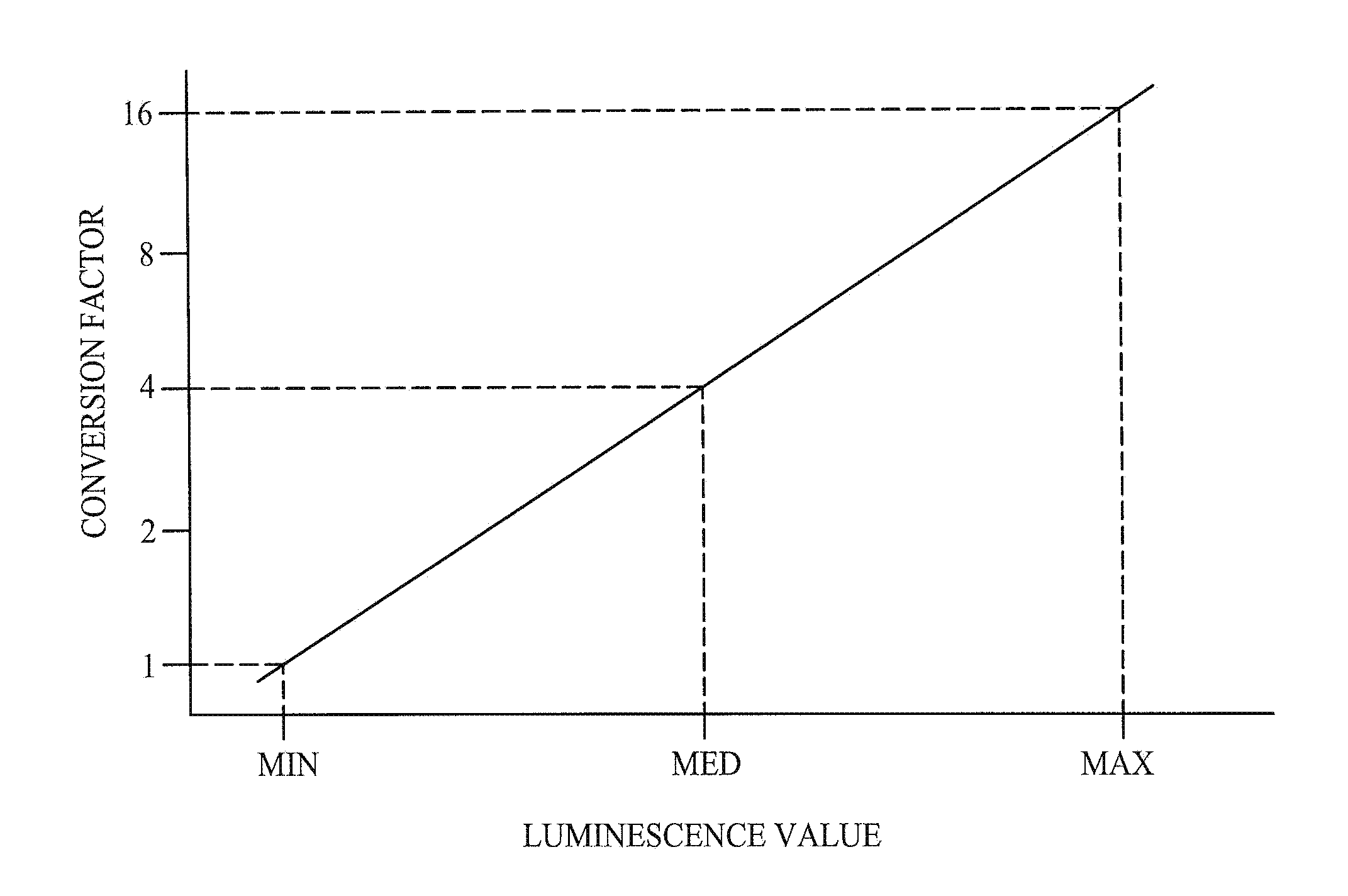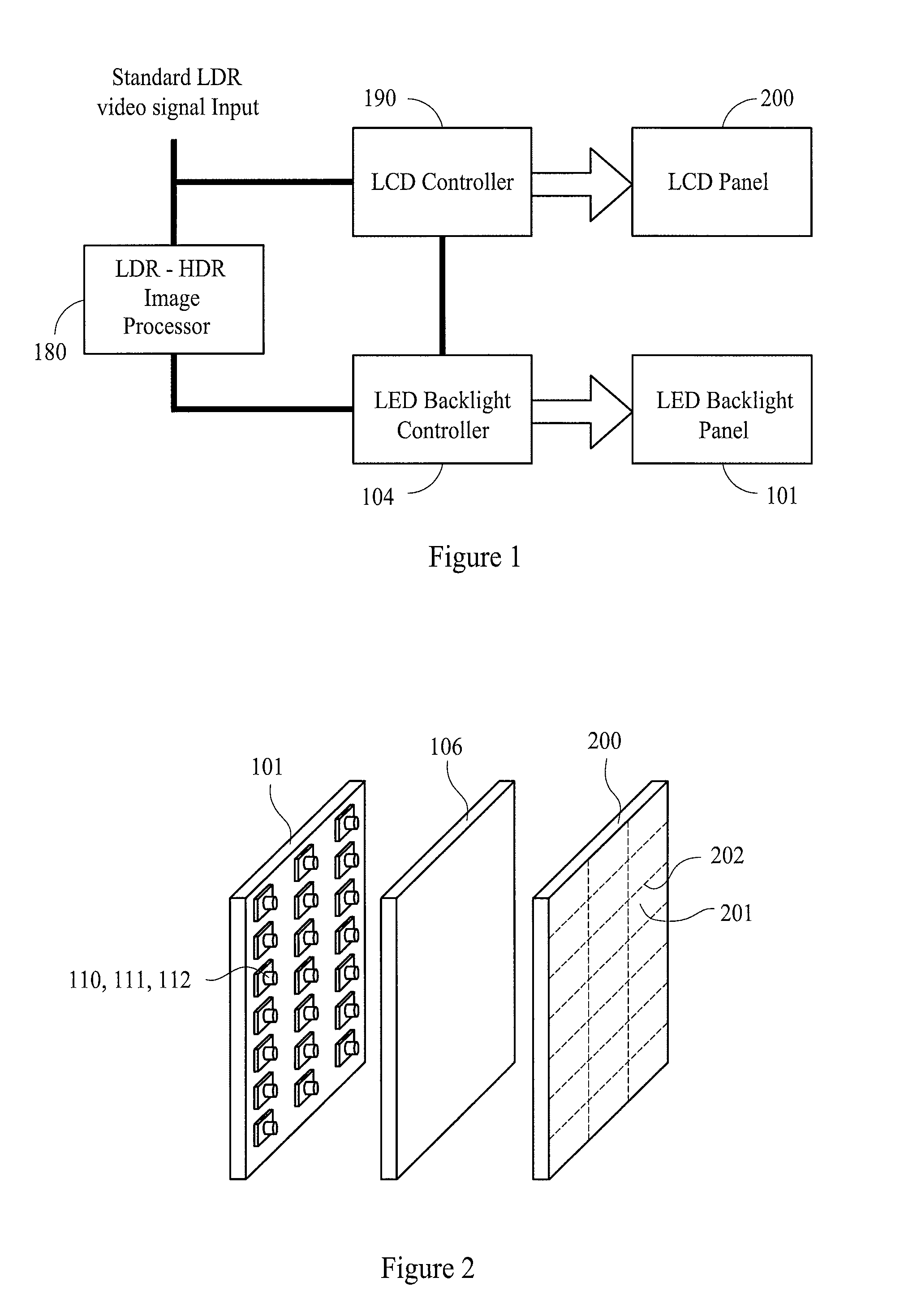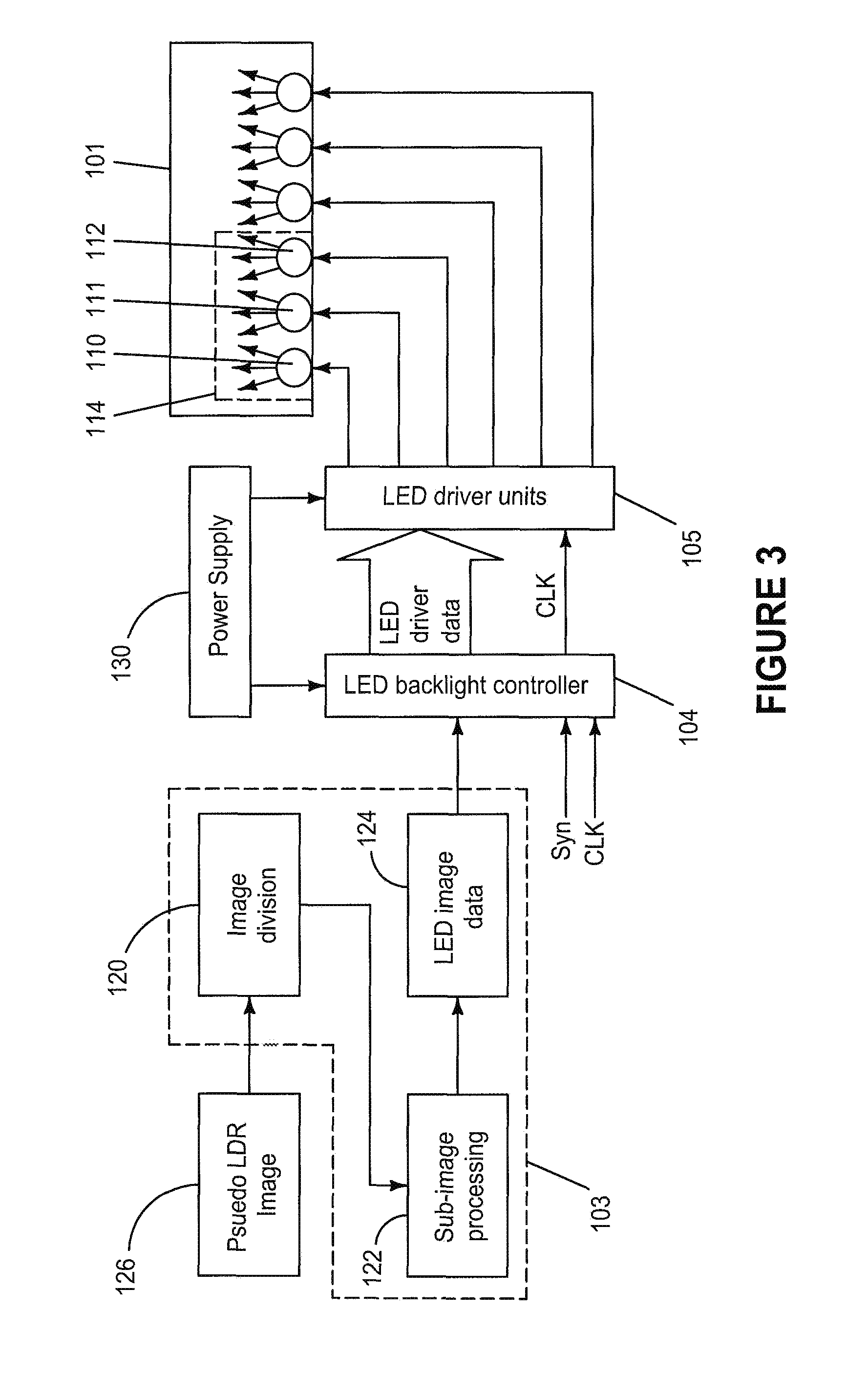Method of displaying a low dynamic range image in a high dynamic range
a high-dynamic range, low-dynamic range technology, applied in the direction of static indicating devices, instruments, cathode-ray tube indicators, etc., can solve the problems of loss of contrast and detail of images, linear stretch does not consider image characteristic and human visual system properties, and can only display images with a dynamic range of around 2 orders of magnitude. , to achieve the effect of increasing the dynamic range of images
- Summary
- Abstract
- Description
- Claims
- Application Information
AI Technical Summary
Benefits of technology
Problems solved by technology
Method used
Image
Examples
Embodiment Construction
[0056]Reference will now be made in detail to exemplary embodiments of the present invention, examples of which are illustrated in the accompanying drawings, wherein like reference numerals refer to like elements throughout.
[0057]Specifically, the present invention relates to a method of increasing the dynamic range of an image and a method of displaying a low dynamic range image in a high dynamic range. However, the invention will be described as embodied in a display device that has a high luminance dynamic range.
[0058]The inventors have already proposed in an earlier application Ser. No. 11 / 707,517 filed on 16 Feb. 2007 a liquid crystal display device having a dynamic backlight that can improve the contrast and luminance dynamic range of the display output. The contents of said application Ser. No. 11 / 707,517 filed on 16 Feb. 2007 are incorporated herein by reference. In a preferred embodiment of the current invention this liquid crystal display device includes an image luminance...
PUM
 Login to View More
Login to View More Abstract
Description
Claims
Application Information
 Login to View More
Login to View More - R&D
- Intellectual Property
- Life Sciences
- Materials
- Tech Scout
- Unparalleled Data Quality
- Higher Quality Content
- 60% Fewer Hallucinations
Browse by: Latest US Patents, China's latest patents, Technical Efficacy Thesaurus, Application Domain, Technology Topic, Popular Technical Reports.
© 2025 PatSnap. All rights reserved.Legal|Privacy policy|Modern Slavery Act Transparency Statement|Sitemap|About US| Contact US: help@patsnap.com



